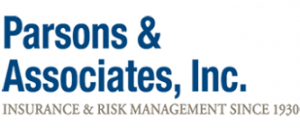Insights and Updates | Fall 2013
|
|
 folder/images/agency-parsonassociates.jpg) |
||
|
[Fall 2013 • New York] |
|||
 folder/images/87786920_medical.jpg)
|
|||||||
Basics of the health
|
|||||||
Is your home wiring safe?If the insulation on your wiring is made of cloth, it may need to be rewired. Over time, cloth can deteriorate and become brittle. Eventually, it may fall off and leave bare, uninsulated wires. Uninsulated wires can spark, start a fire, or if touched, cause electrical shocks. Generally, the older the cloth insulation, the more likely a home needs to be rewired. Homes built before 1950 are likely to have deteriorating cloth insulation. Older homes also may need to have the electrical panels replaced as well. The electrical panel is the box that holds your circuit breakers or fuses. It receives power from the electric company and distributes it to all the circuits in your home. Older electrical panels may not provide sufficient power for current homeowners’ needs. The result could be circuit breakers flipping or fuses blowing. Many homes also have aluminum wiring rather than copper, which has proven to be a The electrical system doesn’t need to be replaced to qualify for a good insurance rating. But, it does need to have been updated within the past 25 years to meet current codes. That means circuit breakers; no old-fashioned fuses. Many insurers refuse to provide insurance to homes with older electrical systems that don’t meet the current safety codes. If you have such a home, you may find your options are limited to companies that charge higher rates. If you’ve recently updated your wiring, contact our agency. |
||||
 folder/images/153643843_mold.jpg)
|
||||
Mold coverage for homeownersLike many things in the media, the threat mold poses to homeowners has been somewhat overblown. While individual stories have offered more nuanced takes on the issue, the collective clamor is somewhat sensationalistic. The truth is most people are not affected by mold. According to the Centers for Disease Control and Prevention, certain mold-sensitive people can suffer “symptoms such as nasal stuffiness, eye irritation, wheezing, or skin irritation” upon exposure. The elderly, small children and those with weak immune systems or chronic respiratory ailments can experience more severe reactions. That being said, mold is not something you want in your home. So, with that context offered, we can get to the real question: Is mold clean-up covered by my homeowners policy? The standard homeowners policy is designed to protect against sudden and accidental loses. Mold commonly arises from long-term issues such as ongoing water seepage, humidity problems, faulty drainage or condensation. Mold from any of these sources would be considered a “maintenance” problem and would not be covered ordinarily. On the other hand, mold stemming from burst pipes or similar incidents may be covered, provided the mold is hidden from view. For more comprehensive mold coverage, some policies offer mold endorsements, allowing you to pay an additional premium in exchange for limited mold coverage. If nothing else, this article should make clear that today’s insurance/mold situation is murky. Give us a call with your mold concerns, or stop by the office. We can review your policy with you and discuss the options available. |
||||
 folder/images/119508367_flood.jpg)
|
||||
Storms and used cars … buyer beware!Anytime a serious storm involves flooding, there is a chance water-damaged used cars can end up on a car dealership’s lot. Even if the storm wasn’t in your area there’s a possibility you could buy a damaged car. Cars that have been submerged in flood waters can have electrical and mechanical problems, not to mention problems with rust and corrosion, which could take years to manifest. If you are considering buying a previously owned car, take it to a qualified mechanic before you purchase it. The mechanic should be able to identify the signs of water damage. However, there are a few things you can look for while you are on the lot.
Various states have set up databases to allow consumers to check a car’s Vehicle Identification Number to see if it has been reported as flood damaged. There are other resources to investigate a car’s history, as well, including: Carfax (www.carfax.com); Auto Check (www.autocheck.com); and Consumer Guide (http://consumerguideauto.howstuffworks.com/). There isn’t an insurance policy you can buy to protect yourself before you purchase a water-damaged car. In fact, if your car is involved in an accident after you purchase it and it’s discovered the car perviously had damage, your insurance claim will only pay the actual cash value of the car, which could be considerably less than you paid for it. If you have any questions about what your auto insurance policy will or will not cover, give our agency a call—before you buy a car. We’re here to help you in all your insurance-buying needs. |
||||
 folder/images/162661269_txt.jpg)
|
||||
Texting and driving—don’t do itWe’ve all seen someone driving erratically in two lanes of traffic and when we pass the car, sure enough, the person is on his or her cell phone or sending a text message. Let’s be honest, sometimes that person behaving dangerously on the road is us. We all know driving while using a hand-held cell phone isn’t the smartest thing we’ve ever done, but did you know texting while driving causes:
Not only is it dangerous, but the use of hand-held cell phones for talking or texting is illegal. Under New York state law, drivers cannot use a hand-held mobile telephone or send a text or an email while driving. If drivers use a hand-held mobile telephone while they drive (except to call 911 or to contact medical, fire or police personnel about an emergency) or use a device to text or send email, they can receive a traffic ticket and pay a maximum fine of $100 and mandatory surcharges and fees of up to $85. Improper cell phone use also can cost a driver five points on his or her license. All these fines and possible points for distracted driving on a driver’s license also can affect car insurance rates and premiums. So, play it safe: Don’t text or talk on your hand-held cell phone unless it’s an emergency. And, if you have any questions about your auto insurance policy, give our agency a call. We are here to help you. |
||||
News from our agencyDon’t be a victim of fraud
The Coalition Against Insurance Fraud says nearly At one level, insurance fraud is an economic crime costing individuals, business and government billions of dollars a year. But, fraud also can be a violent crime involving personal injury and serious property damage. Insurance fraud also imposes other personal costs such as disrupted lives and families, humiliation and depression, lost jobs, ruined credit and bankruptcy. After accidents, losses, damage, or anything else of concern happen to, or on, your property, please give us a call. If something seems the least bit suspicious, don’t hesitate to consult us. Checking in with your agent could save you a mountain of trouble. |
 folder/images/56384433_news.jpg) |
||||
|
The information in this newsletter is meant as a guideline only. There is If you prefer not to receive this e-mail newsletter from [AGENCY NAME], click here. |
||||

 folder/images/logo-insights.jpg)





